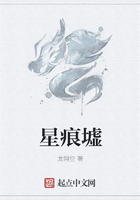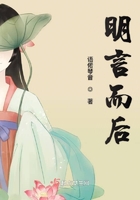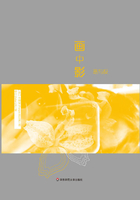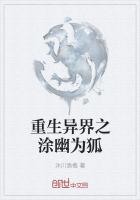THIS is not the time at which I am to enter on the state of my mind beneath its load of sorrow. I came to think that the Future was walled up before me, that the energy and action of my life were at an end, that I never could find any refuge but in the grave. I came to think so, I say, but not in the first shock of my grief. It slowly grew to that. If the events I go on to relate, had not thickened around me, in the beginning to confuse, and in the end to augment, my affliction, it is possible (though I think not probable), that I might have fallen at once into this condition. As it was, an interval occurred before I fully knew my own distress; an interval, in which I even supposed that its sharpest pangs were past; and when my mind could soothe itself by resting on all that was most innocent and beautiful, in the tender story that was closed for ever.
When it was first proposed that I should go abroad, or how it came to be agreed among us that I was to seek the restoration of my peace in change and travel, I do not, even now, distinctly know. The spirit of Agnes so pervaded all we thought, and said, and did, in that time of sorrow, that I assume I may refer the project to her influence. But her influence was so quiet that I know no more.
And now, indeed, I began to think that in my old association of her with the stained-glass window in the church, a prophetic foreshadowing of what she would be to me, in the calamity that was to happen in the fullness of time, had found a way into my mind. In all that sorrow, from the moment, never to be forgotten, when she stood before me with her upraised hand, she was like a sacred presence in my lonely house. When the Angel of Death alighted there, my child-wife fell asleep—they told me so when I could bear to hear it—on her bosom, with a smile. From my swoon, I first awoke to a consciousness of her compassionate tears, her words of hope and peace, her gentle face bending down as from a purer region nearer Heaven, over my undisciplined heart, and softening its pain.
Let me go on.
I was to go abroad. That seemed to have been determined among us from the first. The ground now covering all that could perish of my departed wife, I waited only for what Mr. Micawber called the‘final pulverization of Heep’; and for the departure of the emigrants.
At the request of Traddles, most affectionate and devoted of friends in my trouble, we returned to Canterbury: I mean my aunt, Agnes, and I. We proceeded by appointment straight to Mr. Micawber's house; where, and at Mr. Wickfield's, my friend had been labouring ever since our explosive meeting. When poor Mrs. Micawber saw me come in, in my black clothes, she was sensibly affected. There was a great deal of good in Mrs. Micawber's heart, which had not been dunned out of it in all those many years.
‘Well, Mr. and Mrs. Micawber,’was my aunt's first salutation after we were seated.‘Pray, have you thought about that emigration proposal of mine?’
‘My dear madam,’returned Mr. Micawber,‘perhaps I cannot better express the conclusion at which Mrs. Micawber, your humble servant, and I may add our children, have jointly and severally arrived, than by borrowing the language of an illustrious poet, to reply that our Boat is on the shore, and our Bark is on the sea.’
‘That's right,’said my aunt.‘I augur all sort of good from your sensible decision.’
‘Madam, you do us a great deal of honour,’he rejoined. He then referred to a memorandum.‘With respect to the pecuniary assistance enabling us to launch our frail canoe on the ocean of enterprise, I have reconsidered that important business-point; and would beg to propose my notes of hand—drawn, it is needless to stipulate, on stamps of the amounts respectively required by the various Acts of Parliament applying to such securities—at eighteen, twenty-four, and thirty months. The proposition I originally submitted, was twelve, eighteen, and twenty-four; but I am apprehensive that such an arrangement might not allow sufficient time for the requisite amount of—Something—to turn up. We might not,’said Mr. Micawber, looking round the room as if it represented several hundred acres of highly cultivated land,‘on the first responsibility becoming due, have been successful in our harvest, or we might not have got our harvest in. Labour, I believe, is sometimes difficult to obtain in that portion of our colonial possessions where it will be our lot to combat with the teeming soil.’
‘Arrange it in any way you please, sir,’said my aunt.
‘Madam,’he replied,‘Mrs. Micawber and myself are deeply sensible of the very considerate kindness of our friends and patrons. What I wish is, to be perfectly business-like, and perfectly punctual. Turning over, as we are about to turn over, an entirely new leaf; and falling back, as we are now in the act of falling back, for a Spring of no common magnitude; it is important to my sense of self-respect, besides being an example to my son, that these arrangements should be concluded as between man and man.’
I don't know that Mr. Micawber attached any meaning to this last phrase; I don't know that anybody ever does, or did; but he appeared to relish it uncommonly, and repeated, with an impressive cough,‘as between man and man’.
‘I propose,’said Mr. Micawber,‘Bills—a convenience to the mercantile world, for which, I believe, we are originally indebted to the Jews, who appear to me to have had a devilish deal too much to do with them ever since—because they are negotiable. But if a Bond, or any other description of security, would be preferred, I should be happy to execute any such instrument. As between man and man.’
My aunt observed, that in a case where both parties were willing to agree to anything, she took it for granted there would be no difficulty in settling this point. Mr. Micawber was of her opinion.
‘In reference to our domestic preparations, madam,’said Mr. Micawber, with some pride,‘for meeting the destiny to which we are now understood to be self-devoted, I beg to report them. My eldest daughter attends at five every morning in a neighbouring establishment, to acquire the process—if process it may be called—of milking cows. My younger children are instructed to observe, as closely as circumstances will permit, the habits of the pigs and poultry maintained in the poorer parts of this city: a pursuit from which they have, on two occasions, been brought home, within an inch of being run over. I have myself directed some attention, during the past week, to the art of baking; and my son Wilkins has issued forth with a walking-stick and driven cattle, when permitted, by the rugged hirelings who had them in charge, to render any voluntary service in that direction—which I regret to say, for the credit of our nature, was not often; he being generally warned, with imprecations, to desist.’
‘All very right indeed,’said my aunt, encouragingly.‘Mrs. Micawber has been busy, too, I have no doubt.’
‘My dear madam,’returned Mrs. Micawber, with her business-like air.‘I am free to confess that I have not been actively engaged in pursuits immediately connected with cultivation or with stock, though well aware that both will claim my attention on a foreign shore. Such opportunities as I have been enabled to alienate from my domestic duties, I have devoted to corresponding at some length with my family. For I own it seems to me, my dear Mr. Copperfield,’said Mrs. Micawber, who always fell back on me, I suppose from old habit, to whomsoever else she might address her discourse at starting,‘that the time is come when the past should be buried in oblivion; when my family should take Mr. Micawber by the hand, and Mr. Micawber should take my family by the hand; when the lion should lie down with the lamb, and my family be on terms with Mr. Micawber.’
I said I thought so too.
‘This, at least, is the light, my dear Mr. Copperfield,’pursued Mrs. Micawber,‘in which I view the subject. When I lived at home with my papa and mama, my papa was accustomed to ask, when any point was under discussion in our limited circle,“In what light does my Emma view the subject?”That my papa was too partial, I know; still, on such a point as the frigid coldness which has ever subsisted between Mr. Micawber and my family, I necessarily have formed an opinion, delusive though it may be.’
‘No doubt. Of course you have, ma'am,’said my aunt.
‘Precisely so,’assented Mrs. Micawber.‘Now, I may be wrong in my conclusions; it is very likely that I am, but my individual impression is, that the gulf between my family and Mr. Micawber may be traced to an apprehension, on the part of my family, that Mr. Micawber would require pecuniary accommodation. I cannot help thinking,’said Mrs. Micawber, with an air of deep sagacity,‘that there are members of my family who have been apprehensive that Mr. Micawber would solicit them for their names.—I do not mean to be conferred in Baptism upon our children, but to be inscribed on Bills of Exchange, and negotiated in the Money Market.’
The look of penetration with which Mrs. Micawber announced this discovery, as if no one had ever thought of it before, seemed rather to astonish my aunt; who abruptly replied,‘Well, ma'am, upon the whole, I shouldn't wonder if you were right!’
‘Mr. Micawber being now on the eve of casting off the pecuniary shackles that have so long enthralled him,’said Mrs. Micawber,‘and of commencing a new career in a country where there is sufficient range for his abilities,—which, in my opinion, is exceedingly important; Mr. Micawber's abilities peculiarly requiring space,—it seems to me that my family should signalize the occasion by coming forward. What I could wish to see, would be a meeting between Mr. Micawber and my family at a festive entertainment, to be given at my family's expense; where Mr. Micawber's health and prosperity being proposed, by some leading member of my family, Mr. Micawber might have an opportunity of developing his views.’
‘My dear,’said Mr. Micawber, with some heat,‘it may be better for me to state distinctly, at once, that if I were to develop my views to that assembled group, they would possibly be found of an offensive nature: my impression being that your family are, in the aggregate, impertinent Snobs; and, in detail, unmitigated Ruffians.’
‘Micawber,’said Mrs. Micawber, shaking her head,‘no! You have never understood them, and they have never understood you.’
Mr. Micawber coughed.
‘They have never understood you, Micawber,’said his wife.‘They may be incapable of it. If so, that is their misfortune. I can pity their misfortune.’
‘I am extremely sorry, my dear Emma,’said Mr. Micawber, relenting,‘to have been betrayed into any expressions that might, even remotely, have the appearance of being strong expressions. All I would say is, that I can go abroad without your family coming forward to favour me,—in short, with a parting Shove of their cold shoulders; and that, upon the whole, I would rather leave England with such impetus as I possess, than derive any acceleration of it from that quarter. At the same time, my dear, if they should condescend to reply to your communications—which our joint experience renders most improbable—far be it from me to be a barrier to your wishes.’
The matter being thus amicably settled, Mr. Micawber gave Mrs. Micawber his arm, and glancing at the heap of books and papers lying before Traddles on the table, said they would leave us to ourselves; which they ceremoniously did.
‘My dear Copperfield,’said Traddles, leaning back in his chair when they were gone, and looking at me with an affection that made his eyes red, and his hair all kinds of shapes,‘I don't make any excuse for troubling you with business, because I know you are deeply interested in it, and it may divert your thoughts. My dear boy, I hope you are not worn out?’
‘I am quite myself,’said I, after a pause.‘We have more cause to think of my aunt than of anyone. You know how much she has done.’
‘Surely, surely,’answered Traddles.‘Who can forget it!’
‘But even that is not all,’said I.‘During the last fortnight, some new trouble has vexed her; and she has been in and out of London every day. Several times she has gone out early, and been absent until evening. Last night, Traddles, with this journey before her, it was almost midnight before she came home. You know what her consideration for others is. She will not tell me what has happened to distress her.’
My aunt, very pale, and with deep lines in her face, sat immovable until I had finished; when some stray tears found their way to her cheeks, and she put her hand on mine.
‘It's nothing, Trot; it's nothing. There will be no more of it. You shall know by and by. Now Agnes, my dear, let us attend to these affairs.’
‘I must do Mr. Micawber the justice to say,’Traddles began,‘that although he would appear not to have worked to any good account for himself, he is a most untiring man when he works for other people. I never saw such a fellow. If he always goes on in the same way, he must be, virtually, about two hundred years old, at present. The heat into which he has been continually putting himself; and the distracted and impetuous manner in which he has been diving, day and night, among papers and books; to say nothing of the immense number of letters he has written me between this house and Mr. Wickfield's, and often across the table when he has been sitting opposite, and might much more easily have spoken; is quite extraordinary.’
‘Letters!’cried my aunt.‘I believe he dreams in letters!’
‘There's Mr. ****, too,’said Traddles,‘has been doing wonders! As soon as he was released from overlooking Uriah Heep, whom he kept in such charge as I never saw exceeded, he began to devote himself to Mr. Wickfield. And really his anxiety to be of use in the investigations we have been ******, and his real usefulness in extracting, and copying, and fetching, and carrying, have been quite stimulating to us.’
‘**** is a very remarkable man,’exclaimed my aunt;‘and I always said he was. Trot, you know it.’
‘I am happy to say, Miss Wickfield,’pursued Traddles, at once with great delicacy and with great earnestness,‘that in your absence Mr. Wickfield has considerably improved. Relieved of the incubus that had fastened upon him for so long a time, and of the dreadful apprehensions under which he had lived, he is hardly the same person. At times, even his impaired power of concentrating his memory and attention on particular points of business, has recovered itself very much; and he has been able to assist us in ****** some things clear, that we should have found very difficult indeed, if not hopeless, without him. But what I have to do is to come to results; which are short enough; not to gossip on all the hopeful circumstances I have observed, or I shall never have done.’His natural manner and agreeable simplicity made it transparent that he said this to put us in good heart, and to enable Agnes to hear her father mentioned with greater confidence; but it was not the less pleasant for that.
‘Now, let me see,’said Traddles, looking among the papers on the table.‘Having counted our funds, and reduced to order a great mass of unintentional confusion in the first place, and of wilful confusion and falsification in the second, we take it to be clear that Mr. Wickfield might now wind up his business, and his agency-trust, and exhibit no deficiency or defalcation whatever.’
‘Oh, thank Heaven!’cried Agnes, fervently.
‘But,’said Traddles,‘the surplus that would be left as his means of support—and I suppose the house to be sold, even in saying this—would be so small, not exceeding in all probability some hundreds of pounds, that perhaps, Miss Wickfield, it would be best to consider whether he might not retain his agency of the estate to which he has so long been receiver. His friends might advise him, you know; now he is free. You yourself, Miss Wickfield—Copperfield—I—’
‘I have considered it, Trotwood,’said Agnes, looking to me,‘and I feel that it ought not to be, and must not be; even on the recommendation of a friend to whom I am so grateful, and owe so much.’
‘I will not say that I recommend it,’observed Traddles.‘I think it right to suggest it. No more.’
‘I am happy to hear you say so,’answered Agnes, steadily,‘for it gives me hope, almost assurance, that we think alike. Dear Mr. Traddles and dear Trotwood, papa once free with honour, what could I wish for! I have always aspired, if I could have released him from the toils in which he was held, to render back some little portion of the love and care I owe him, and to devote my life to him. It has been, for years, the utmost height of my hopes. To take our future on myself, will be the next great happiness—the next to his release from all trust and responsibility—that I can know.’
‘Have you thought how, Agnes?’
‘Often! I am not afraid, dear Trotwood. I am certain of success. So many people know me here, and think kindly of me, that I am certain. Don't mistrust me. Our wants are not many. If I rent the dear old house, and keep a school, I shall be useful and happy.’
The calm fervour of her cheerful voice brought back so vividly, first the dear old house itself, and then my solitary home, that my heart was too full for speech. Traddles pretended for a little while to be busily looking among the papers.
‘Next, Miss Trotwood,’said Traddles,‘that property of yours.’
‘Well, sir,’sighed my aunt.‘All I have got to say about it is, that if it's gone, I can bear it; and if it's not gone, I shall be glad to get it back.’
‘It was originally, I think, eight thousand pounds, Consols?’said Traddles.
‘Right!’replied my aunt.
‘I can't account for more than five,’said Traddles, with an air of perplexity.
‘—thousand, do you mean?’inquired my aunt, with uncommon composure,‘or pounds?’
‘Five thousand pounds,’said Traddles.
‘It was all there was,’returned my aunt.‘I sold three, myself. One, I paid for your articles, Trot, my dear; and the other two I have by me. When I lost the rest, I thought it wise to say nothing about that sum, but to keep it secretly for a rainy day. I wanted to see how you would come out of the trial, Trot; and you came out nobly—persevering, self-reliant, self-denying! So did ****. Don't speak to me, for I find my nerves a little shaken!’
Nobody would have thought so, to see her sitting upright, with her arms folded; but she had wonderful self-command.
‘Then I am delighted to say,’cried Traddles, beaming with joy,‘that we have recovered the whole money!’
‘Don't congratulate me, anybody!’exclaimed my aunt.‘How so, sir?’
‘You believed it had been misappropriated by Mr. Wickfield?’said Traddles.
‘Of course I did,’said my aunt,‘and was therefore easily silenced. Agnes, not a word!’
‘And indeed,’said Traddles,‘it was sold, by virtue of the power of management he held from you; but I needn't say by whom sold, or on whose actual signature. It was afterwards pretended to Mr. Wickfield, by that rascal,—and proved, too, by figures,—that he had possessed himself of the money (on general instructions, he said) to keep other deficiencies and difficulties from the light. Mr. Wickfield, being so weak and helpless in his hands as to pay you, afterwards, several sums of interest on a pretended principal which he knew did not exist, made himself, unhappily, a party to the fraud.’
‘And at last took the blame upon himself,’added my aunt;‘and wrote me a mad letter, charging himself with robbery, and wrong unheard of. Upon which I paid him a visit early one morning, called for a candle, burnt the letter, and told him if he ever could right me and himself, to do it; and if he couldn't, to keep his own counsel for his daughter's sake.—If anybody speaks to me, I'll leave the house!’
We all remained quiet; Agnes covering her face.
‘Well, my dear friend,’said my aunt, after a pause,‘and you have really extorted the money back from him?’
‘Why, the fact is,’returned Traddles,‘Mr. Micawber had so completely hemmed him in, and was always ready with so many new points if an old one failed, that he could not escape from us. A most remarkable circumstance is, that I really don't think he grasped this sum even so much for the gratification of his avarice, which was inordinate, as in the hatred he felt for Copperfield. He said so to me, plainly. He said he would even have spent as much, to baulk or injure Copperfield.’
‘Ha!’said my aunt, knitting her brows thoughtfully, and glancing at Agnes.‘And what's become of him?’
‘I don't know. He left here,’said Traddles,‘with his mother, who had been clamouring, and beseeching, and disclosing, the whole time. They went away by one of the London night coaches, and I know no more about him; except that his malevolence to me at parting was audacious. He seemed to consider himself hardly less indebted to me, than to Mr. Micawber; which I consider (as I told him) quite a compliment.’
‘Do you suppose he has any money, Traddles?’I asked.
‘Oh dear, yes, I should think so,’he replied, shaking his head, seriously.‘I should say he must have pocketed a good deal, in one way or other. But, I think you would find, Copperfield, if you had an opportunity of observing his course, that money would never keep that man out of mischief. He is such an incarnate hypocrite, that whatever object he pursues, he must pursue crookedly. It's his only compensation for the outward restraints he puts upon himself. Always creeping along the ground to some small end or other, he will always magnify every object in the way; and consequently will hate and suspect everybody that comes, in the most innocent manner, between him and it. So the crooked courses will become crookeder, at any moment, for the least reason, or for none. It's only necessary to consider his history here,’said Traddles,‘to know that.’
‘He's a monster of meanness!’said my aunt.
‘Really I don't know about that,’observed Traddles thoughtfully.‘Many people can be very mean, when they give their minds to it.’
‘And now, touching Mr. Micawber,’said my aunt.
‘Well, really,’said Traddles, cheerfully,‘I must, once more, give Mr. Micawber high praise. But for his having been so patient and persevering for so long a time, we never could have hoped to do anything worth speaking of. And I think we ought to consider that Mr. Micawber did right, for right's sake, when we reflect what terms he might have made with Uriah Heep himself, for his silence.’
‘I think so too,’said I.
‘Now, what would you give him?’inquired my aunt.
‘Oh! Before you come to that,’said Traddles, a little disconcerted,‘I am afraid I thought it discreet to omit (not being able to carry everything before me) two points, in ****** this lawless adjustment—for it's perfectly lawless from beginning to end—of a difficult affair. Those I.O.U.'s, and so forth, which Mr. Micawber gave him for the advances he had—’
‘Well! They must be paid,’said my aunt.
‘Yes, but I don't know when they may be proceeded on, or where they are,’rejoined Traddles, opening his eyes;‘and I anticipate, that, between this time and his departure, Mr. Micawber will be constantly arrested, or taken in execution.’
‘Then he must be constantly set free again, and taken out of execution,’said my aunt.‘What's the amount altogether?’
‘Why, Mr. Micawber has entered the transactions—he calls them transactions—with great form, in a book,’rejoined Traddles, smiling;‘and he makes the amount a hundred and three pounds, five.’
‘Now, what shall we give him, that sum included?’said my aunt.‘Agnes, my dear, you and I can talk about division of it afterwards. What should it be? Five hundred pounds?’
Upon this, Traddles and I both struck in at once. We both recommended a small sum in money, and the payment, without stipulation to Mr. Micawber, of the Uriah claims as they came in. We proposed that the family should have their passage and their outfit, and a hundred pounds; and that Mr. Micawber's arrangement for the repayment of the advances should be gravely entered into, as it might be wholesome for him to suppose himself under that responsibility. To this, I added the suggestion, that I should give some explanation of his character and history to Mr. Peggotty, who I knew could be relied on; and that to Mr. Peggotty should be quietly entrusted the discretion of advancing another hundred. I further proposed to interest Mr. Micawber in Mr. Peggotty, by confiding so much of Mr. Peggotty's story to him as I might feel justified in relating, or might think expedient; and to endeavour to bring each of them to bear upon the other, for the common advantage. We all entered warmly into these views; and I may mention at once, that the principals themselves did so, shortly afterwards, with perfect good will and harmony.
Seeing that Traddles now glanced anxiously at my aunt again, I reminded him of the second and last point to which he had adverted.
‘You and your aunt will excuse me, Copperfield, if I touch upon a painful theme, as I greatly fear I shall,’said Traddles, hesitating;‘but I think it necessary to bring it to your recollection. On the day of Mr. Micawber's memorable denunciation a threatening allusion was made by Uriah Heep to your aunt's—husband.’
My aunt, retaining her stiff position, and apparent composure, assented with a nod.
‘Perhaps,’observed Traddles,‘it was mere purposeless impertinence?’
‘No,’returned my aunt.
‘There was—pardon me—really such a person, and at all in his power?’hinted Traddles.
‘Yes, my good friend,’said my aunt.
Traddles, with a perceptible lengthening of his face, explained that he had not been able to approach this subject; that it had shared the fate of Mr. Micawber's liabilities, in not being comprehended in the terms he had made; that we were no longer of any authority with Uriah Heep; and that if he could do us, or any of us, any injury or annoyance, no doubt he would.
My aunt remained quiet; until again some stray tears found their way to her cheeks.‘You are quite right,’she said.‘It was very thoughtful to mention it.’
‘Can I—or Copperfield—do anything?’asked Traddles, gently.
‘Nothing,’said my aunt.‘I thank you many times. Trot, my dear, a vain threat! Let us have Mr. and Mrs. Micawber back. And don't any of you speak to me!’With that she smoothed her dress, and sat, with her upright carriage, looking at the door.
‘Well, Mr. and Mrs. Micawber!’said my aunt, when they entered.‘We have been discussing your emigration, with many apologies to you for keeping you out of the room so long; and I'll tell you what arrangements we propose.’
These she explained to the unbounded satisfaction of the family,—children and all being then present,—and so much to the awakening of Mr. Micawber's punctual habits in the opening stage of all bill transactions, that he could not be dissuaded from immediately rushing out, in the highest spirits, to buy the stamps for his notes of hand. But, his joy received a sudden check; for within five minutes, he returned in the custody of a sheriff's officer, informing us, in a flood of tears, that all was lost. We, being quite prepared for this event, which was of course a proceeding of Uriah Heep's, soon paid the money; and in five minutes more Mr. Micawber was seated at the table, filling up the stamps with an expression of perfect joy, which only that congenial employment, or the ****** of punch, could impart in full completeness to his shining face. To see him at work on the stamps, with the relish of an artist, touching them like pictures, looking at them sideways, taking weighty notes of dates and amounts in his pocket-book, and contemplating them when finished, with a high sense of their precious value, was a sight indeed.
‘Now, the best thing you can do, sir, if you'll allow me to advise you,’said my aunt, after silently observing him,‘is to abjure that occupation for evermore.’
‘Madam,’replied Mr. Micawber,‘it is my intention to register such a vow on the virgin page of the future. Mrs. Micawber will attest it. I trust,’said Mr. Micawber, solemnly,‘that my son Wilkins will ever bear in mind, that he had infinitely better put his fist in the fire, than use it to handle the serpents that have poisoned the life-blood of his unhappy parent!’Deeply affected, and changed in a moment to the image of despair, Mr. Micawber regarded the serpents with a look of gloomy abhorrence (in which his late admiration of them was not quite subdued), folded them up and put them in his pocket.
This closed the proceedings of the evening. We were weary with sorrow and fatigue, and my aunt and I were to return to London on the morrow. It was arranged that the Micawbers should follow us, after effecting a sale of their goods to a broker; that Mr. Wickfield's affairs should be brought to a settlement, with all convenient speed, under the direction of Traddles; and that Agnes should also come to London, pending those arrangements. We passed the night at the old house, which, freed from the presence of the Heeps, seemed purged of a disease; and I lay in my old room, like a shipwrecked wanderer come home.
We went back next day to my aunt's house—not to mine—and when she and I sat alone, as of old, before going to bed, she said:
‘Trot, do you really wish to know what I have had upon my mind lately?’
‘Indeed I do, aunt. If there ever was a time when I felt unwilling that you should have a sorrow or anxiety which I could not share, it is now.’
‘You have had sorrow enough, child,’said my aunt, affectionately,‘without the addition of my little miseries. I could have no other motive, Trot, in keeping anything from you.’
‘I know that well,’said I.‘But tell me now.’
‘Would you ride with me a little way tomorrow morning?’asked my aunt.
‘Of course.’
‘At nine,’said she.‘I'll tell you then, my dear.’
At nine, accordingly, we went out in a little chariot, and drove to London. We drove a long way through the streets, until we came to one of the large hospitals. Standing hard by the building was a plain hearse. The driver recognized my aunt, and, in obedience to a motion of her hand at the window, drove slowly off; we following.
‘You understand it now, Trot,’said my aunt.‘He is gone!’
‘Did he die in the hospital?’
‘Yes.’
She sat immovable beside me; but, again I saw the stray tears on her face.
‘He was there once before,’said my aunt presently.‘He was ailing a long time—a shattered, broken man, these many years. When he knew his state in this last illness, he asked them to send for me. He was sorry then. Very sorry.’
‘You went, I know, aunt.’
‘I went. I was with him a good deal afterwards.’
‘He died the night before we went to Canterbury?’said I. My aunt nodded.‘No one can harm him now,’she said.‘It was a vain threat.’
We drove away, out of town, to the churchyard at Hornsey.‘Better here than in the streets,’said my aunt.‘He was born here.’
We alighted; and followed the plain coffin to a corner I remember well, where the service was read consigning it to the dust.
‘Six-and-thirty years ago, this day, my dear,’said my aunt, as we walked back to the chariot,‘I was married. God forgive us all!’We took our seats in silence; and so she sat beside me for a long time, holding my hand. At length she suddenly burst into tears, and said:
‘He was a fine-looking man when I married him, Trot—and he was sadly changed!’
It did not last long. After the relief of tears, she soon became composed, and even cheerful. Her nerves were a little shaken, she said, or she would not have given way to it. God forgive us all!
So we rode back to her little cottage at Highgate, where we found the following short note, which had arrived by that morning's post from Mr. Micawber:
‘Canterbury,
‘Friday
‘My dear Madam, and Copperfield,
‘The fair land of promise lately looming on the horizon is again enveloped in impenetrable mists, and for ever withdrawn from the eyes of a drifting wretch whose Doom is sealed!
‘Another writ has been issued (in His Majesty's High Court of King's Bench at Westminster), in another cause of HEEP V. MICAWBER, and the defendant in that cause is the prey of the sheriff having legal jurisdiction in this bailiwick.
‘Now's the day, and now's the hour,
See the front of battle lower,
See approach proud EDWARD'S power—
Chains and slavery!
‘Consigned to which, and to a speedy end (for mental torture is not supportable beyond a certain point, and that point I feel I have attained), my course is run. Bless you, bless you! Some future traveller, visiting, from motives of curiosity, not unmingled, let us hope, with sympathy, the place of confinement allotted to debtors in this city, may, and I trust will, Ponder, as he traces on its wall, inscribed with a rusty nail,
‘The obscure initials,
‘W. M.
‘P.S. I re-open this to say that our common friend, Mr. Thomas Traddles (who has not yet left us, and is looking extremely well), has paid the debt and costs, in the noble name of Miss Trotwood; and that myself and family are at the height of earthly bliss.’















